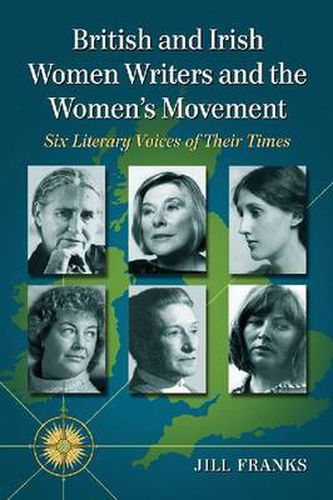Readings Newsletter
Become a Readings Member to make your shopping experience even easier.
Sign in or sign up for free!
You’re not far away from qualifying for FREE standard shipping within Australia
You’ve qualified for FREE standard shipping within Australia
The cart is loading…






This study pairs selected Irish and British women novelists, relating their voices to the women’s movements in their respective nations. In the first wave, nationalist and militant ideologies competed with the suffrage fight in Ireland. Elizabeth Bowen’s novel illustrates the melancholy of gender and confusion of ethnic identity in the dying Anglo-Irish Ascendancy class. In England, suffrage ideologies clashed with socialism and patriotism. Virginia Woolf’s novel contains a political unconscious that links its characters across class and gender.
In the second wave, heterosexual romantic relationships come under scrutiny. Edna O'Brien’s trilogy reveals ways in which Irish Catholic ideologies abject femaleness; her characters internalise this abjection to the point of self-destruction. Doris Lessing’s novel pits the protagonist’s aspirations to write novels against the Communist Party’s prohibitions on bourgeois values.
In the third wave, Irish writers express the frustrations of their cultural identity. Nuala O'Faolain’s novel takes her protagonist back to Ireland to heal her psychic wounds. In England, Thatcherism had created a materialistic culture that eroded many feminists’ socialist values. Fay Weldon’s novel satirises the demise of second-wave idealism, asking where feminism can go from here.
$9.00 standard shipping within Australia
FREE standard shipping within Australia for orders over $100.00
Express & International shipping calculated at checkout
This study pairs selected Irish and British women novelists, relating their voices to the women’s movements in their respective nations. In the first wave, nationalist and militant ideologies competed with the suffrage fight in Ireland. Elizabeth Bowen’s novel illustrates the melancholy of gender and confusion of ethnic identity in the dying Anglo-Irish Ascendancy class. In England, suffrage ideologies clashed with socialism and patriotism. Virginia Woolf’s novel contains a political unconscious that links its characters across class and gender.
In the second wave, heterosexual romantic relationships come under scrutiny. Edna O'Brien’s trilogy reveals ways in which Irish Catholic ideologies abject femaleness; her characters internalise this abjection to the point of self-destruction. Doris Lessing’s novel pits the protagonist’s aspirations to write novels against the Communist Party’s prohibitions on bourgeois values.
In the third wave, Irish writers express the frustrations of their cultural identity. Nuala O'Faolain’s novel takes her protagonist back to Ireland to heal her psychic wounds. In England, Thatcherism had created a materialistic culture that eroded many feminists’ socialist values. Fay Weldon’s novel satirises the demise of second-wave idealism, asking where feminism can go from here.